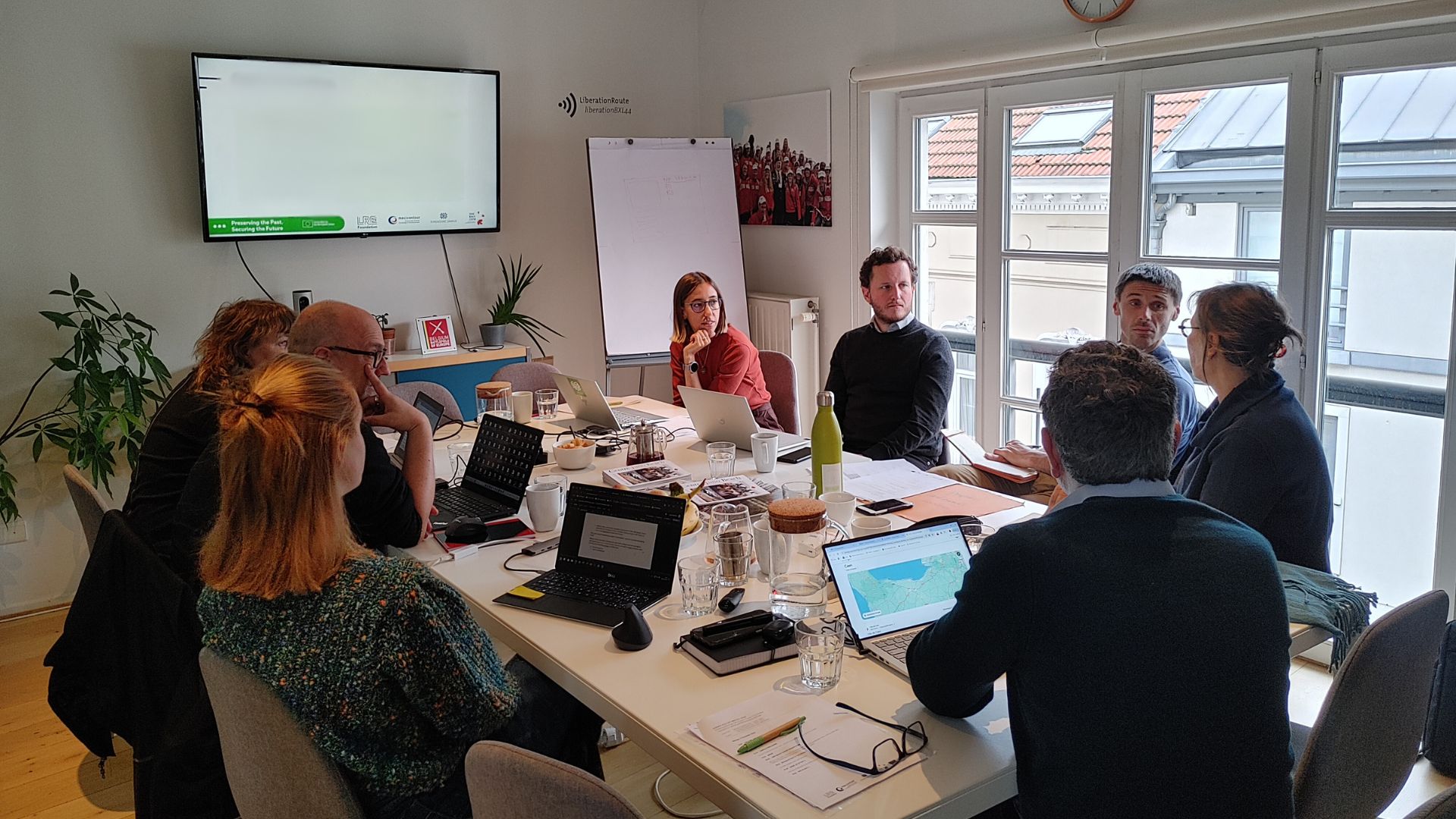This week, the LRE Foundation Brussels office hosted the launch of “Preserving the Past, Securing the Future: A Sustainable Approach to Cultural and Remembrance Heritage”, a new initiative funded by the Creative Europe Programme. The project aims to develop sustainable practices in the cultural heritage and remembrance sectors, focusing particularly on World War II remembrance tourism sites. The project addresses a significant challenge: ensuring that these places can adapt to the modern-day need for socio-cultural, economic and environmental sustainability so that they are able to continue educating and inspiring future generations.
The project goes beyond preserving history, making the important connection between remembrance of World War II and the need to combat todays’ urgent global issues, such as climate change and social inequality. By fostering sustainable development in the sector, the project and its partners seek to create a legacy not only of remembrance but also of responsibility.
Collaboration Across Borders
Central to the project’s vision is the collaboration with three key partners, each bringing unique expertise to the table. Mascontour, a German consultancy specialising in the implementation of resilient and sustainable tourism, offers a strong foundation in training and capacity building for the tourism sector. From Italy, Fondazione Campus Studi del Mediterraneo contributes its academic knowledge in tourism and environmental studies, ensuring a robust research base for the project. Finally, the Juno Beach Centre in France, a centre of interpretation dedicated to the 45,000 Canadians who lost their lives during the Second World War, exemplifies how sustainability can be effectively integrated into remembrance site management, providing a strong case study of experience and ongoing good practices.
This combination of academic, practical, and consultancy expertise underscores the project’s interdisciplinary nature.
Kick-Off Meeting and next steps
The two-day meeting in Brussels marked the project’s official start, bringing together the partner to align on objectives and establish a collaborative framework. Participants explored the project’s aims and objectives, discussed timelines and partner roles, and shared ideas on how to maximise stakeholder engagement and capacity building activities.
The meeting concluded with a clear set of next steps. Immediate priorities include finalising the structure of capacity-building activities, complemented by e-learning modules, mentoring and peer-learning, and study visits which will equip professionals in the remembrance sector with the necessary skills and knowledge to implement sustainable tourism practices. Stakeholder engagement initiatives will also begin: a research phase will investigate best practices and stakeholders’ needs in order to form a strong foundation for the subsequent project activities. This includes outreach efforts targeting organisations that can both contribute to and benefit from the project. Lastly, dissemination efforts will ensure widespread awareness of the project’s objectives and outcomes, targeting both industry professionals and the general public to foster a collective commitment to sustainability.
While the meeting laid a solid foundation, the real work lies ahead.
‘The project team is committed to this exciting cooperation and to ensuring that each stage of the project reflects the shared vision developed in Brussels. As this project begins, it has potential for an important and lasting impact, not just for stakeholders in the sector but for visitors and members of the public too. We are very happy to be working alongside such strong and passionate partners on this topic to make real change in the sector’ Emme Johnson, Project Officer at the LRE Foundation.
